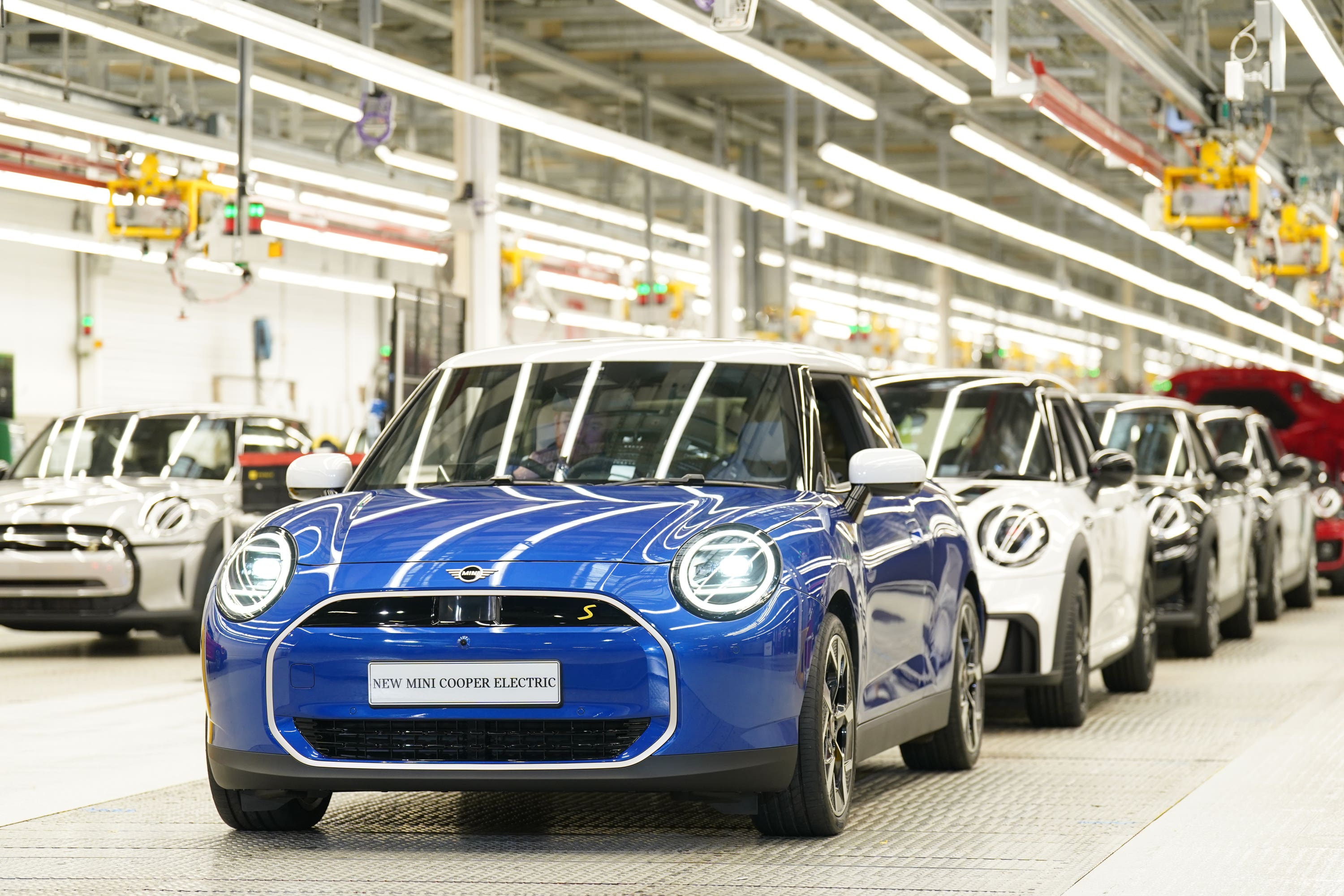BMW gets Government funding to support £600m UK investment in electric cars
The German manufacturer said it will transform its plant in Oxford to enable production of two new electric Mini models to begin in 2026.

Your support helps us to tell the story
From reproductive rights to climate change to Big Tech, The Independent is on the ground when the story is developing. Whether it's investigating the financials of Elon Musk's pro-Trump PAC or producing our latest documentary, 'The A Word', which shines a light on the American women fighting for reproductive rights, we know how important it is to parse out the facts from the messaging.
At such a critical moment in US history, we need reporters on the ground. Your donation allows us to keep sending journalists to speak to both sides of the story.
The Independent is trusted by Americans across the entire political spectrum. And unlike many other quality news outlets, we choose not to lock Americans out of our reporting and analysis with paywalls. We believe quality journalism should be available to everyone, paid for by those who can afford it.
Your support makes all the difference.BMW has announced a £600 million investment to prepare its Mini factory in Oxford to build new electric cars after securing Government funding.
The German manufacturer said it will transform the plant to enable production of two new electric Mini models to begin in 2026.
Business Secretary Kemi Badenoch, who visited the site on Monday, refused to comment on speculation that the Government funding was worth £75 million.
She told reporters: “I won’t comment on the figure because that creates difficulties in future negotiations.
“What I will say is that we do provide some subsidy, very light subsidy, in the auto industry because it faces so much difficulty, and some of that is regulatory.”
The Cabinet minister said car manufacturing around the world is “not a pure free trade market” so “we have to think very carefully about which industries you want in the UK”.
She added that support for BMW is part of the Government’s automotive transformation fund, which it put £350 million into in 2021.
Rishi Sunak said the Government is securing jobs and growing the economy “by backing our car manufacturing industry”.
“BMW’s investment is another shining example of how the UK is the best place to build cars of the future,” the Prime Minister added.
Addressing Ms Badenoch in a speech at the Oxford plant, BMW Group board member Dr Milan Nedeljkovic, said: “Without your support, this transformation would not be possible. This was the right move at the right time.”
BMW said it will invest a total of £600 million at the Oxford site and another Mini factory in Swindon, Wiltshire, where vehicle body panels are made.
In Oxford, this will involve changes to production lines and the creation of a new area for installing batteries.
The new electric Mini Cooper and Mini Aceman models will be assembled at the plant alongside conventionally-fuelled cars.
Mini production in Oxford will be exclusively electric from 2030.
This is seen as vital to securing its future, as the brand is going fully electric from then.
More than 4,000 people work across the Oxford and Swindon factories.
The announcement is the latest boost for the British car industry, with figures last month suggesting production increased by almost a third compared with a year ago.
The Society of Motor Manufacturers and Traders said it shows that carmakers are continuing their recovery from recent difficulties, including global chip shortages.
Last week electric vehicle production also began at the Stellantis factory in Ellesmere Port after a £100 million investment, following doubts due to post-Brexit trading arrangements.
Vans such as the Vauxhall Combo Electric, Opel Combo Electric, Peugeot e-Partner, Citroen e-Berlingo and Fiat E-Doblo will be made at the Cheshire site.
Car makers have urged the European Union to delay post-Brexit trade rules which will lead to tariffs on exports of many UK-built cars, particularly electric models.
The bloc’s rules of origin provision is due to come into force in January 2024.
Asked about the progress of discussions over the issue with the EU, Ms Badenoch told reporters this is “something that we have been raising with the EU for a very long time”.
The Cabinet minister said putting tariffs on each other’s products “will only benefit Chinese companies” – where many electric vehicle batteries are made.
She added: “We need to make sure that the rules work for today, not for five years ago when we were drawing them up together, and I’ve made that very clear to my counterparts and their industries, I think, are screaming at the EU so hopefully we can get something positive.
“But if not, the UK Government is very, very behind the auto industry as we’ve shown with all the series of announcements and we will have another plan.”